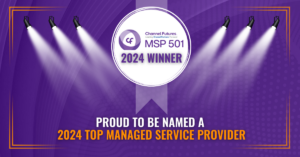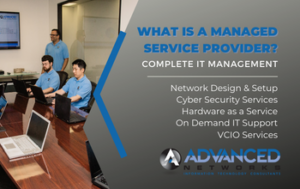Cloud migrations are becoming increasingly popular as businesses of all sizes realize the benefits of cloud-based solutions.
In fact, in 2022 alone, 61% of all businesses migrated their workload to the cloud, and 94% of enterprises use cloud services.
However, what they don’t tell you is that making the switch from on-premises systems to the cloud can be very difficult, and is fraught with challenges that can impact your ability to successfully make the migration.
Not only that, but failing to successfully complete a cloud migration or overrunning the project can make your costs skyrocket in the hundreds of thousands.
To help ensure your cloud migration planning goes well, this article will outline the 10 most common cloud migration challenges and provide tips for overcoming them.
What is Cloud Migration and What is it All About?
Before we dive into the cloud migration challenges, let’s first define what cloud migration is and why it’s important for businesses to consider.
Cloud migration is the process of moving data, applications, and resources from on-premises systems or private cloud environments to a cloud computing environment.
This can involve anything from migrating a single application to completely transforming your entire IT infrastructure.
There are numerous benefits that come with cloud migrations, including:
- Scalability
- Cost savings
- Increased agility and flexibility
- Improved security and disaster recovery capabilities
As more companies adopt cloud technologies in their day-to-day operations, it’s becoming increasingly important for businesses to have a strong cloud presence in order to stay competitive.
Now, let’s dive into the top 10 cloud migration challenges that businesses may face and how to overcome them.
Ready to Speak to IT Experts About Your Own Cloud Migration Questions?Schedule a free consultation with us to get the answers you need! |
The 10 Most Common Cloud Migration Challenges and How to Mitigate Them
1. Lack of Cloud Skills and Expertise
One of the most common cloud migration challenges is a lack of cloud expertise within your organization.
The cloud is constantly evolving, making it difficult for teams to keep up with all the new developments and updates without adequate training or experience working in cloud environments.
This can lead to delays in the migration process as well as potentially creating security vulnerabilities if cloud best practices aren’t followed properly.
To mitigate cloud migration challenges like this one, consider investing in cloud skills training for your team or partnering with a reliable managed services provider who can provide expertise and support for your cloud platforms throughout the cloud migration process.
2. Underestimating Cloud Migration Costs
Many businesses underestimate just how expensive cloud migrations can be, from licensing fees and cloud infrastructure costs to hiring outside consultants or partners for help with the migration.
To avoid overrunning your cloud migration budget, carefully plan and consider all potential expenses during the planning phase. Work with a managed services provider who can also help you accurately estimate cloud migration costs and identify cost-saving opportunities within your cloud migration strategies.
3. Cloud Vendor Lock-In Concerns
One of the main benefits of using cloud services is that it offers flexibility and scalability for businesses, allowing them to quickly adapt their IT resources as their needs change.
But some organizations may be hesitant about getting moved to the cloud due to concerns about being locked into a specific cloud vendor.
Before committing to a cloud provider, thoroughly research their terms and contracts as well as their track record for supporting customers during migrations and changes in cloud environments.
Additionally, it’s vital to ensure you have a clear understanding of your organization’s cloud needs and goals so that you can select the right cloud provider that will meet those needs.
4. Difficulty Migrating Legacy Applications
Legacy applications, which are older and often custom-built applications, can often be difficult or even impossible to migrate to the cloud due to compatibility issues or outdated technology.
One solution is modernizing these legacy applications by updating them with more current technologies before migrating them to the cloud. Or, consider replacing them with cloud-based alternatives that offer similar functionality, or adopting a hybrid cloud solution.
5. Slow Network Speeds and Performance Issues
Another potential issue during cloud migrations is slow network speeds or a decrease in overall performance as compared to on-premises systems. This can have a negative impact on productivity, business objectives and user experience for employees accessing cloud resources.
To address this challenge, work with a managed services provider who can help optimize your cloud infrastructure for maximum performance or supply hosting services via third-party data centers and ensure that your network connectivity can handle cloud usage demands.
Interested in learning more about the kind of value MSPs are bringing to businesses? Check out these blogs: |
6. Data Security and Compliance Concerns
Security is always a major concern when it comes to managing sensitive data, and migrating those assets to the cloud may bring up additional worries about maintaining compliance with industry regulations such as HIPAA or PCI DSS.
Ensure that your cloud provider offers the necessary cloud security measures and support to keep your data safe, such as multi-factor authentication and encryption. And work with a managed services provider who can help you meet compliance requirements and monitor for potential threats in your cloud environment.
7. Lack of Proper Planning and Preparation
A successful cloud migration requires thorough planning and preparation, from analyzing current IT infrastructure to identifying cloud goals and needs as well as developing a detailed migration strategy.
Without proper planning, businesses may run into challenges during the cloud migration process or even end up selecting the wrong cloud solution for their needs.
To avoid this issue, take the time to carefully plan out every step of the cloud migration, from start to finish. And work with a managed services provider who can offer expertise and support throughout the cloud migration process.
8. Insufficient Cloud Skills and Resources
Making the switch to cloud technology often requires developing new skills and expertise, as well as having enough staff and resources available for the cloud migration and ongoing cloud management.
To address this challenge, consider training current staff on cloud technologies or hiring cloud professionals with the necessary skills. Partnering with a managed services provider can also provide access to experienced cloud experts and additional resources when needed.
9. Unanticipated Downtime During Migration
Any unexpected downtime during a cloud migration can have negative consequences for business operations and productivity.
To prevent this issue, carefully plan out your cloud migration timeline and schedule any necessary downtime during slow periods or off-hours.
You should also consider working with a managed services provider who can help minimize disruptions and quickly resolve any unexpected issues that may arise during the cloud migration process.

10. Difficulty integrating Cloud Solutions With Existing Systems
In some cases, businesses may struggle to integrate cloud solutions with their current on-premises infrastructure or other cloud technologies. This can result in difficulties managing and utilizing cloud resources effectively.
To best mitigate this challenge, a managed services provider who has experience integrating cloud solutions can offer support in optimizing your overall cloud infrastructure.
You can also select cloud solutions that are compatible with your current technology setup and have features for seamless integration.
Mitigating Cloud Migration Challenges With the Help of a Managed Services Provider
Migrating to the cloud can bring numerous benefits for businesses, but it’s important to consider and prepare for potential challenges that may arise during the cloud migration process.
By addressing these common cloud migration challenges and taking steps to prevent or mitigate them, businesses can ensure a successful cloud adoption.
Advanced Networks is a managed IT services provider that helps clients in Los Angeles and Orange County use technology to their advantage. We work with our clients to design and carry out local or cloud-based solutions, always striving for improved operations.
To discover what kind of ROI we can bring to your business through the power of cloud computing, schedule a free consultation with us today.




